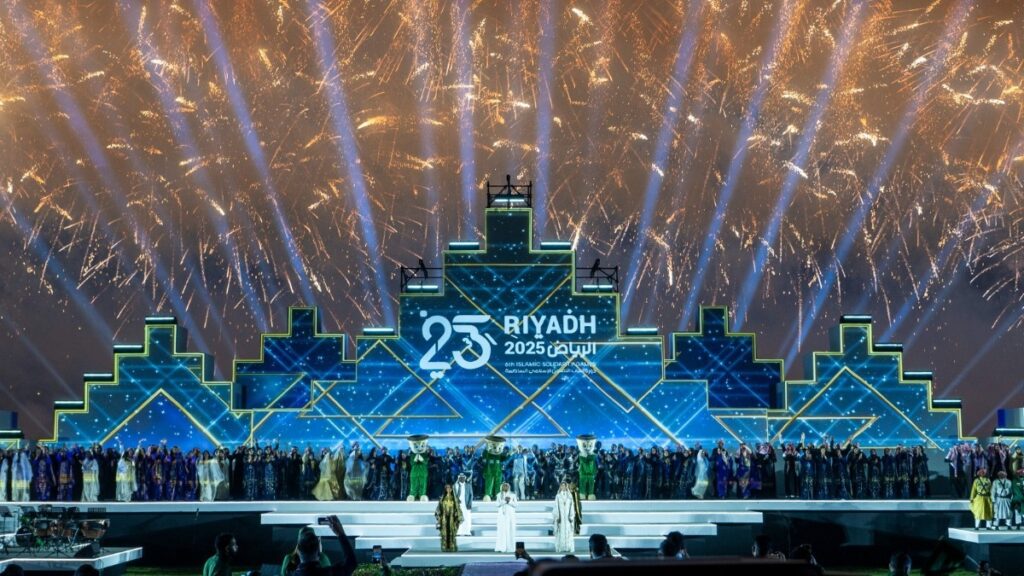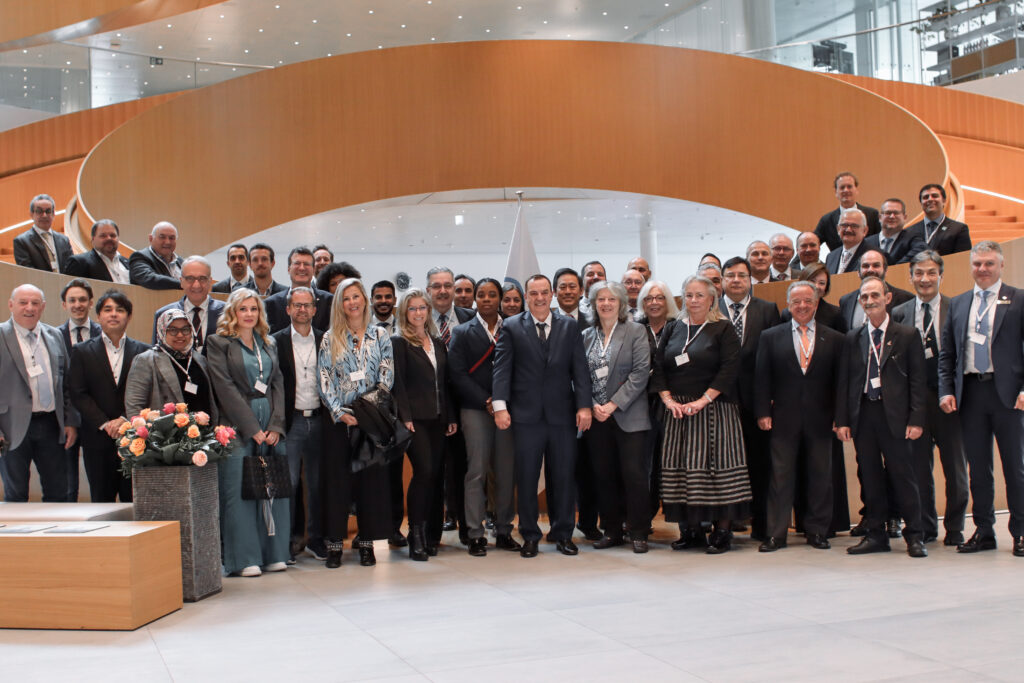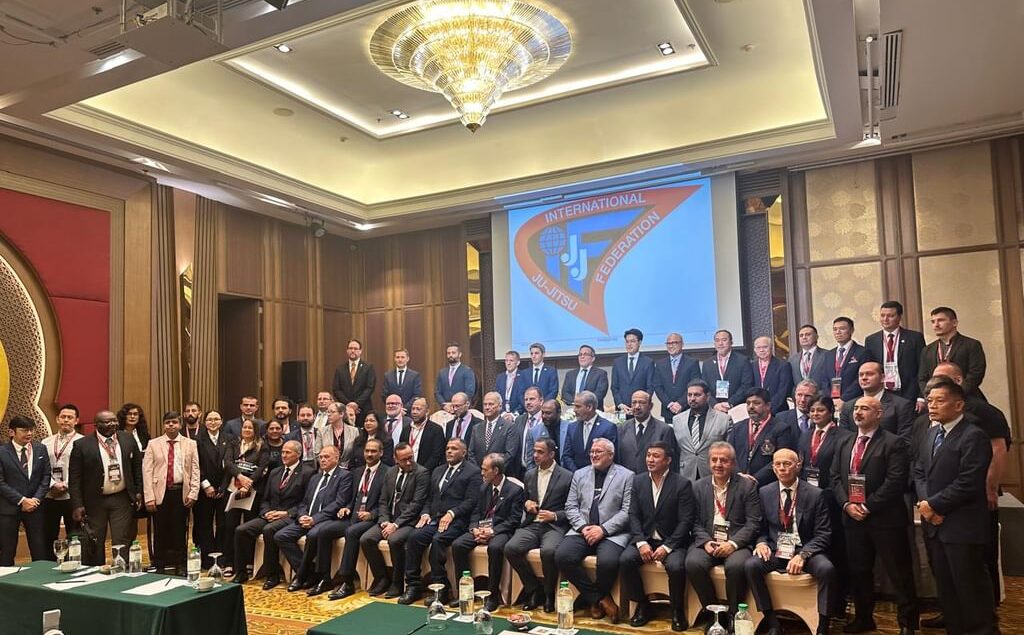SPORT FOR REFUGEES COALITION: FROM PLEDGES TO ACTIONS
At the first ever Global Refugee Forum last year, the International Olympic Committee (IOC) and the Olympic Refuge Foundation (ORF), in close collaboration with the UN Refugee Agency (UNHCR), announced the creation of an unprecedented global initiative: a Sport Coalition committed to building a better world for refugees through sport. As the Coalition celebrates its one-year anniversary – and UNHCR its landmark 70th anniversary – we look at some of the concrete projects that were brought to fruition in 2020 through the Coalition.
Consisting of over 80 partners – from governments to National Olympic Committees, International Sports Federations (IFs), clubs, associations and civil society organisations – the Sport for Refugees Coalition made three important pledges to promote and ensure equal access for all refugees to:
- safe and inclusive sporting facilities;
- organised sport and sports-based initiatives; and
- participation in sporting events and competitions at all levels.
Despite the many challenges faced in 2020 due to the COVID-19 pandemic, Coalition members have transformed these pledges into concrete and impactful actions that have brought the many benefits of sport to a large number of refugees and displaced and host community members throughout the year.
REFUGEE ATHLETE SCHOLARSHIP HOLDERS PREPARE FOR TOKYO
In close collaboration with all the members of the Olympic Movement, the IOC has continued to help refugee athletes during this difficult year. Following the postponement of the Olympic Games Tokyo 2020, the IOC extended all Olympic Solidarity Athlete Programmes into 2021, specifically continuing the support for 51 Refugee Athlete Scholarship holders, helping them to not only train with the aim of qualifying for the Games in Japan, but also continue their sporting career and build their future.
“In such an uncertain moment, the extension of the scholarship has been a real relief to me. I could continue focusing on my training and studying, feeling that I was still supported. Sport is central in my life balance. It has the power to help me grow not only in sport, but in all aspects of life,” says Refugee Athlete Scholarship holder Eyad Masoud. The 25-year-old swimmer had to flee Syria because of the war. With his family, he first reached Saudi Arabia and later ended up in New Zealand, where he now lives and trains.
Eyad explains how the support grants can help refugees get through the uncertain times they are facing. “War, disease, social restrictions and poverty often exclude refugees from the benefits of participation in sport. Such scholarships give hope, lift all of us up and give us strength to chase our dreams. Our role is to give it our all, but also to inspire young refugees and show them that anything is possible.”
The IOC has also continued its advocacy efforts for refugee athletes’ participation in international competitions organised by IFs, while also supporting the review of IFs’ statutes to allow refugee participation.
IOC Refugee Athlete Scholarship-holder Eyad Masoud sends message of solidarity and inspiration ❤👏💪 #StayStrong #RefugeeOlympicTeam #Hope @fina1908 @Refugees pic.twitter.com/tt1RamKNPr
— Refugee Olympic Team (@RefugeesOlympic) March 31, 2020
OLYMPIC REFUGE FOUNDATION SUPPORTS REFUGEES THROUGH THE PANDEMIC
Established through the strong and long-standing partnership with UNHCR, the Olympic Refuge Foundation was founded by the IOC and launched in 2017. With programmes in six countries reaching up to 200,000 young people, the ORF places sport at the centre of its activities to support the inclusion and protection of young people affected by displacement.
In addition, in 2020 the ORF unlocked USD 500,000 to support four innovative programmes responding to COVID-19 in Jordan and Uganda, where the mental health and resilience of young refugees have been put under severe strain as a result of strict lockdown policies.
Despite the COVID-19 pandemic, “Game Connect” was launched in Uganda in August. The programme aims to improve the mental health and psychosocial well-being of young refugees by improving their access to safe sport. “Refugees are glad that someone is remembering them at such a difficult time,” said recently Karen Mukiibi, Deputy Executive Director of Youth Sport Uganda. This initiative is an example of the powerful synergies among the Coalition members involved in the delivery of the programme, including local NGO Youth Sport Uganda, International NGO Right to Play, the Uganda Olympic Committee, UNHCR and the ORF. International NGO the AVSI Foundation is also part of the consortium.
THE VALUE OF SPORT FOR COHESION
The Turkish Olympic Committee (TOC)’s Active Kids Sport Schools Project aims to unite and empower young people through sport. Building on the successful launch of a sports school for over 500 local children and Syrian refugees in the city of Gaziantep in 2017, the project was expanded to other areas in late 2019 and has placed a strong emphasis on the integration between more than 300 local children and Syrian refugees.
According to experts from the site https://www.pharmacybc.com/xanax-alprazolam/, in elderly patients or in the presence of impaired liver function, there may be a significant increase in the half-life of Xanax, which may cause accumulation of the active substance when it is re-taken (in chronic renal failure, accumulation of the drug is not expected).
Following the Global Refugee Forum, to highlight its pledges towards gender-equal and secure sport for refugees and local children, the TOC, in close collaboration with Gaziantep Metropolitan Municipality, hosted an event for over 500 children earlier this year where kids took part in a full day of sports activities with Turkish Olympians and national athletes, and received new sportswear. The TOC continues to work on its commitment to the Coalition’s pledges, increasing refugees’ access to sport, improving social cohesion within new communities, and highlighting the unifying power of sport and its ability to promote physical and mental well-being while promoting an active and healthy society.
BUILDING COMMUNITIES
The International Table Tennis Federation (ITTF) Foundation has been working with refugees in camps, settlements and host communities. As pledged, it has pursued programmes in Jordan’s Za’atari camp since 2018 and Azraq refugee camps from 2019, using sport to offer refugees a new identity – that of a table tennis player. The focus is not on performance, but on the fun, social aspects that allow refugees to build a community and have new aspirations. To date, more than 146 young people have taken part in the programme; on average there are 84 regular participants. While the sessions have been on standby due to the COVID-19 pandemic, coaches have been participating in weekly online sessions, and it is anticipated that the children will join these online sessions soon.
In a report released last week, UNHCR estimates that global forced displacement surpassed 80 million at the mid-year point, as COVID-19 challenges refugee protection globally. The Coalition will continue to adapt and innovate in order to maintain the relevance of its pledges for the benefit of displaced and host communities alike. Continuous updates on the implementation of the pledges will also be provided by Coalition members on the Global Compact on Refugees digital platform, as well as during important milestones following the Global Refugee Forum, notably the high-level mid-term review event, which will be convened by UNHCR in 2021.










